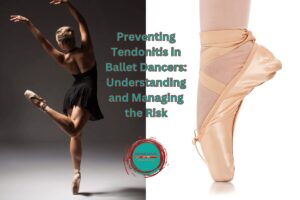 In our busy physiotherapy clinics here in the city, it is easy to spot injury trends as they come and go. Sometimes, patients present to us with problems linked to the time of year (ski season, hockey season, summer sports), sometimes linked to an upcoming London event (the marathon for example) and sometimes they may be influenced by the newest exercise craze to hit the capital!
In our busy physiotherapy clinics here in the city, it is easy to spot injury trends as they come and go. Sometimes, patients present to us with problems linked to the time of year (ski season, hockey season, summer sports), sometimes linked to an upcoming London event (the marathon for example) and sometimes they may be influenced by the newest exercise craze to hit the capital!
You will have noticed by now the huge increase in popularity of CrossFit®, Insanity®, P90X®, BMF and Gym Jones®. These are known in the exercise world as Extreme Conditioning Programmes (ECPs) and were originally designed for the military. They are marketed to a wide, active population and often consist of a variety of training methods such as resistance training with kettlebells/barbells, repeated body weight exercises, explosive movements, sprints and flexibility. The sessions are characterised by being high-volume and vigorous, with short rest periods between sets or no rest at all! Exercises may be under time conditions and participation in this form of exercise is usually high-frequency too (can be up to 5-6 times per week).
In 2014, the American College of Sports Medicine released a paper to outline the potential benefits of ECPs, as well as some concerns. The positives include a motivational form of exercise and engagement in functional multi-joint exercise. Many ECPs contain elements of circuit-based/high intensity interval-style training (HIIT), and this sort of training has been shown to have several health benefits, including improvements to cardiovascular health, muscular strength gains, lowering blood pressure (when elevated) and increasing metabolic conditioning (improving good HDL-cholesterol and insulin sensitivity).
 Concerns arise due to the speed of timed repetitions of specific exercises, insufficient rest periods between exercises or ECP workouts. This can all lead to an increased risk of acute injuries, overuse injuries and over-training in general. Due to the complexity of some of the movements (Olympic lifts and power lifting for example), ECPs may not be suitable for people completely new to exercise in general. Not much research has been conducted or published about ECPs to date, however, one study did look at the Crossfit population and has shown a profile of injuries comparable to Olympic lifting, with shoulder and spinal injuries being the most common.
Concerns arise due to the speed of timed repetitions of specific exercises, insufficient rest periods between exercises or ECP workouts. This can all lead to an increased risk of acute injuries, overuse injuries and over-training in general. Due to the complexity of some of the movements (Olympic lifts and power lifting for example), ECPs may not be suitable for people completely new to exercise in general. Not much research has been conducted or published about ECPs to date, however, one study did look at the Crossfit population and has shown a profile of injuries comparable to Olympic lifting, with shoulder and spinal injuries being the most common.
If you are thinking about starting an ECP, you can’t go wrong if you keep the following in mind:
- Start gradually, with a planned, progression of exercise with gradual increasing intensity and duration. This is by far the safest way to allow physiological adaptation to take place (ie get stronger and fitter!) and keep you injury free
- Ensure appropriate recovery time between exercises sets during a session (2-3 minutes)
- Avoid excessive repetitions, or training movements that lead to exhaustive fatigue
- Separate ECP workouts with days of relative rest in between and vary your training with other exercise forms that are lower intensity/impact (cycling, swimming, yoga, Pilates)
- Make sure the instructor taking your ECP workout is a certified and qualified exercise professional
- Do not perform any exercise if you experience pain in any joints or soft tissues (muscles, ligaments etc) at the time. This may be influenced by changing the exercise slightly (squatting to half instead of full range for example), however, if the exercise cannot be modified and be made less painful it should be avoided completely. Help should be sought from a physiotherapist or medical professional if the pain is worsening.
- Whilst post-exercise muscle ache is normal (called DOMS – delayed onset of muscle soreness), it must be monitored closely. If it lasts more than a couple of days or is worsening, seek advice from a physiotherapist or another medical professional.
If you have any questions about ECPs or wish to seek some physiotherapy input following an ECP related injury (or anything else!), do not hesitate to get in touch with us. We have some of the best physiotherapists in London who specialise in the assessment and treatment of sports-injuries. Call us on 020 7404 6343 or email [email protected].
References:
American College of Sports Medicine
Extreme Conditioning Programmes: Potential Benefits and Potential Risks. (2015) Knapik. J Spec Oper Med. 2015 Fall;15(3):108-13.
Injury rate and patterns amongst Crossfit Athletes (2014). Wiestenthal et al. Orthopaedic Journal of Sports Medicine April 2014 vol. 2 no. 42325967114531177




Comments